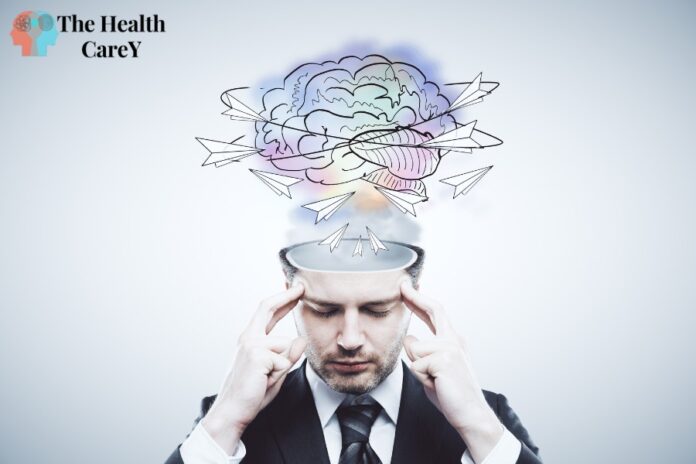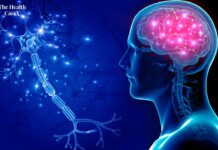Head Trip is a term used to describe the sensation of being disconnected from reality, often experienced during the use of psychoactive substances or in certain mental health conditions.
This phenomenon can be described as detachment from one’s surroundings, a distortion of perception, or a sense of being in a dream-like state. While the experience of a Head Trip can be intense and frightening, it has also been the subject of fascination and curiosity for many people.
Various substances, including LSD, psilocybin mushrooms, and DMT, can induce head Trips. These substances are known for their ability to alter perception and induce hallucinations, leading to a profound shift in consciousness.
However, Head Trips can also occur naturally in certain mental health conditions, such as depersonalization or derealization disorders. In these cases, the experience can be distressing and interfere with daily life.
What is a Head Trip?
Head Trip is a term used to describe an altered state of consciousness induced by various means. It can be achieved through psychoactive substances, such as LSD, mushrooms, or DMT, or through non-chemical methods, such as meditation or sensory deprivation.
During a Head Trip, a person may experience various sensory and perceptual changes. They may see vibrant colours, patterns, and shapes not present in their normal waking state. They may also experience a heightened sense of connectedness to the world around them or a feeling of detachment from their physical body.
While Head Trips can be a fascinating and transformative experience for some, they can also be unpredictable and potentially dangerous. The effects of psychoactive substances can vary widely from person to person and can be influenced by dosage, set, and setting factors. Non-chemical methods, such as sensory deprivation, can also be risky if not done properly.
It is important to approach Head Trips with caution and to do your research beforehand. If you are considering experimenting with psychoactive substances, starting with a low dose and in a safe and comfortable environment with trusted companions is recommended. If you are interested in non-chemical methods, seeking guidance from a qualified practitioner is important.
Causes of a Head Trip
The head trip, also known as a psychedelic experience, is a unique and intense experience that various factors can cause. Some of the most common causes of a head trip include:
- Psychedelic drugs: Psychedelic drugs such as LSD, psilocybin, and DMT can cause a head trip. These drugs alter the brain’s chemistry, leading to a distorted perception of reality and intense emotional experiences.
- Meditation: Deep meditation can cause a head trip by altering the brain’s chemistry and inducing a state of altered consciousness.
- Lucid dreaming: Lucid dreaming, or the ability to control one’s dreams, can cause a head trip by inducing a state of altered consciousness and allowing the dreamer to experience intense emotional and sensory experiences.
- Extreme stress: Extreme stress can cause a head trip by inducing a state of altered consciousness and leading to intense emotional experiences.
While a head trip can be a powerful and transformative experience, it is important to note that it can also be dangerous. The use of psychedelic drugs can lead to unpredictable and potentially harmful experiences, and meditation and lucid dreaming should be practised with caution. It is important to approach these experiences with a clear mind and a willingness to let go of control.
Symptoms of a Head Trip
A head trip is a term used to describe a state of mind where a person experiences altered perceptions, emotions, and thoughts. This can occur for various reasons, such as drug use, meditation, or a mental disorder. Here are some common symptoms of a head trip:
- Visual distortions
- Changes in perception of time and space
- Heightened sensitivity to light and sound
- Feelings of euphoria or anxiety
- Loss of sense of self or identity
- Difficulty with coordination and balance
It is important to note that not all head trips are the same, and symptoms can vary depending on the individual and the situation. Some people may experience only mild symptoms, while others may have more intense and prolonged effects.
Drug-induced head trips can be particularly dangerous, leading to unpredictable behaviour and potentially harmful situations. It is always important to use caution and seek medical attention if necessary.
Treatment for a Head Trip
If you are experiencing a head trip, it is important to seek medical attention immediately. Several treatment options are available for those suffering from a head trip, and the appropriate treatment will depend on the cause and severity of the symptoms.
One common treatment for a head trip is medication. If the head trip is caused by anxiety or a panic attack, anti-anxiety medication may help calm the individual and reduce symptoms. If the head trip is caused by a medical condition, such as high blood pressure or a neurological disorder, medication may be prescribed to help manage the underlying condition.
In addition to medication, therapy may also be recommended as a treatment for a head trip. Cognitive-behavioural therapy (CBT) is a common type of therapy that can help individuals identify and change negative thought patterns contributing to their symptoms. This therapy can also help individuals learn coping skills to manage their symptoms and prevent future head trips.
Other treatment options for a head trip may include lifestyle changes, such as reducing stress, regular exercise, and practising relaxation techniques like deep breathing or meditation. Alternatively, alternative therapies like acupuncture or massage may also be recommended to help reduce symptoms and promote overall wellness.
It is important to work closely with a healthcare professional to determine the best course of treatment for a head trip. With the right treatment and support, individuals can manage their symptoms and improve their quality of life.
Prevention of a Head Trip
Head Trip is a term used to describe a state of mind where a person is lost in their thoughts and disconnected from reality. Various factors, such as drug use, stress, and lack of sleep, can cause it. While it may seem harmless, a head trip can lead to dangerous situations and accidents. Therefore, it is essential to prevent it from happening in the first place.
Here are some tips to prevent a head trip:
- Avoid drugs: Drug use is one of the most common causes of a head trip. Therefore, avoiding drugs, especially hallucinogens, is crucial, which can alter your perception of reality and lead to a head trip.
- Get enough sleep: Lack of sleep can cause fatigue, leading to a head trip. Therefore, getting enough sleep every night is essential to stay alert and focused.
- Reduce stress: Stress can cause anxiety and lead to a head trip. Therefore, finding ways to reduce stress, such as meditation, exercise, or leisure time in nature, is crucial.
- Stay hydrated: Dehydration can cause fatigue and confusion, leading to a head trip. Therefore, drinking enough water throughout the day is essential to stay hydrated.
By following these tips, you can prevent a head trip and stay focused and alert daily.
Also Read:




















